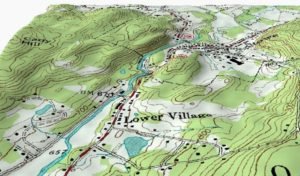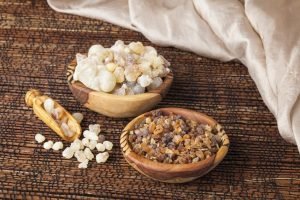Water is an inorganic, odorless, tasteless, transparent, and colorless chemical substance. It is the main component of the earth’s hydrosphere as well as liquid in a living organism. Also, it is an important component that forms part of life despite not providing organic nutrients and calories. Water plays a vital role in the human economy. Below are important uses of water in daily life.
1. Cooking
Water has dissolving power that makes it vital in cooking. Soft water is preferred to hard water because it has higher solvent power. This because hard water has already mixed in materials hence dissolves less in flavors and food substances. Soft water cooks tender meat, dried beans, cereals, and peas. The addition of soda in tough food assists in softening. Moreover, water extracts flavors when making tea, coffee, and soups.
2. Bathing
Bathing involves washing the body by water or immersing the body inside water. This is practiced for hygiene, therapeutic purposes, and religious rituals. Therapeutic involves treating water or hydrotherapy, while religious rituals involve baptism or immersion. Bathing takes place in all situations as long as there is warm or cold water.
3. Hydroelectric power

People used water in ancient times; modern people use to produce electricity. Hydroelectric is renewable energy which used water flowing in rivers or stored in dams in order to create electricity. Falling water is made to rotate turbine blades that spin generators, which changes the mechanical energy of turbines into electrical energy. Hydropower is known to be an important component of producing electricity worldwide.
4. Drinking
Drinking water should be safe for consumption. Water is required in the body and depends on several factors, including maintaining health and level of physical activities. Also, it varies on health-related issues as well as environmental conditions such as summer.
5Watering plants
Water alongside soil and sunlight are important to better yields of your garden. Enough water is required for healthy plants without flooding the soil. Not all plants need the same amount of water; it varies from a different climate, different plants, and different weather. Therefore, you need to plant similar crops together that need the same amount of water.
6. Tourism
Water is known to have a superior attraction to tourists when planning for travel and vacation. Ecotourism is a way to enjoy resources of water while conserving nature. The tourism business is growing and expanding every year around the world. This increase is because individuals desire to be knowledgeable about the ecosystem. Additionally, the popularity of tourism has led to the development of lake, coastal, and riverfront.
7. Recreation
Water is a form of recreation, pleasure, and instruction. Places with water have led to the development of hotels, housing, retail, convention centers, and entertainment facilities. Popular activities include sports fishing, kayaking, cruise ships, underwater diving, kayaking, and canoeing.
8. Transportation

Water transport involves movement of people and goods through the boat, barge, sailboat, or ship over ocean, canal, lake, river, and sea. Early civilizations that opened waterways relied on watercraft for movement from one place to another. Egyptians were first to use sea vessels followed by Greeks, Cretans, and Romans.
9. Industries
Water is needed by industries that produce wood, metals, paper, food, petroleum, gasoline, chemicals, and oils. Each product manufactured must use water as part of the production procedure. This includes washing, processing, fabricating, cooling, diluting, and transportation.
10. Removal of body wastes
The removal of body wastes is known as excretion. The human body should excrete waste products in order to maintain itself. There is no place inside the body for keeping wastes. Waste is removed in the form of gas, liquid, or solid. Urine is in the form of liquid waste formed in kidneys, and healthy urine should be clear. Dark urine indicates that your body has a low level of water and limits the amount of lost water through urine.
11. Fisheries

Fishing involves catching fish out of water. It may also include catching aquatic animals such as crustaceans, mollusks, cephalopods, and echinoderms. Fish are caught as food and others for recreational pastimes.
12. Photosynthesis
Photosynthesis is a complex chemical reaction that plants use in order to make food from water, carbon dioxide, light energy, and atmosphere. Water is used directly during the process and helps to prevent dehydration.
13. Brushing teeth
Tooth brushing is personal hygiene that involves scrubbing teeth using toothbrushes, toothpaste, and water.
14. Washing
Washing is a procedure of cleaning with water and detergent. Cleaning utensils and clothes are part of good health and hygiene.
15. Building
Water has become an integral part of the building. The quality of water should be maintained so that the building will not damage. Moreover, water is essential for mixing cement concrete.
16. Functioning of brain
The brain should have not less than 75% of water. It enables you to be focused, thinks faster, and experience creativity and clarity.
17. Regulate body temperature
Water plays a major role in regulating internal temperature to that of external temperature. Sweat prevents the body against overheating when the outside temperature is high.
18. Create saliva
Saliva contains water as the main component. It also has mucus, electrolytes, and enzymes to break down food. Production of saliva increases when you take a high amount of water.
19. Protects joints, tissues and spinal cord
Cells, tissues, and organs use water to regulate temperature. It helps to keep tissues moist. Additionally, water acts as a lubricant to protect and cushion the spinal code and joints.
20. Prevents constipation

Fiber is not the only method of preventing constipation but also water. A bowel movement should be maintained by enough water.
21. Improve physical performance
Drinking enough water is important during physical activities. Hydration will affect power, strength, and endurance.
22. Lose weight
Research shows that body fat can be reduced by drinking plenty of water. Drinking water while exercising or dieting helps to lose extra weight.
23. Fights illness
Water helps to prevent medical conditions, including kidney stones, constipation, hypertension, urinary tract infection, and exercise-induced asthma.
24. Boost energy
Water helps to activate metabolism. Studies show that the boost of metabolism is associated with energy levels.
25. Circulation of blood oxygen
Water transports essential nutrients and oxygen throughout the body. Daily water improves the circulation of blood oxygen.
26. Absorption of nutrients
Besides breaking down food, water helps to dissolve minerals, vitamins, and many other nutrients found in food.
27. Improves mood
A limited amount of water affects mood. Dehydration causes confusion, fatigue, and anxiety.
28. Brightens skin
An adequate amount of water assists in hydrating skin and promotes the production of collagen. This will reduce the aging process.
29. Prevent dehydration
Dehydration is a result of not having enough water in the body. Severe dangers can cause seizures, kidney failure, and swelling of the brain.
30. Aids digestion
Experts claim that drinking water before a meal, during the meal, and after will aid digestion by breaking down food.





Zabardast bole to ekdum zhakas information diye la hai bidu ❤💥
Lovely
found this very informing and useful.
Wow, very informative
Super useful it helps me for our group activity
I used this to cheat in my class thank you. Thank you again.
that makes me happy